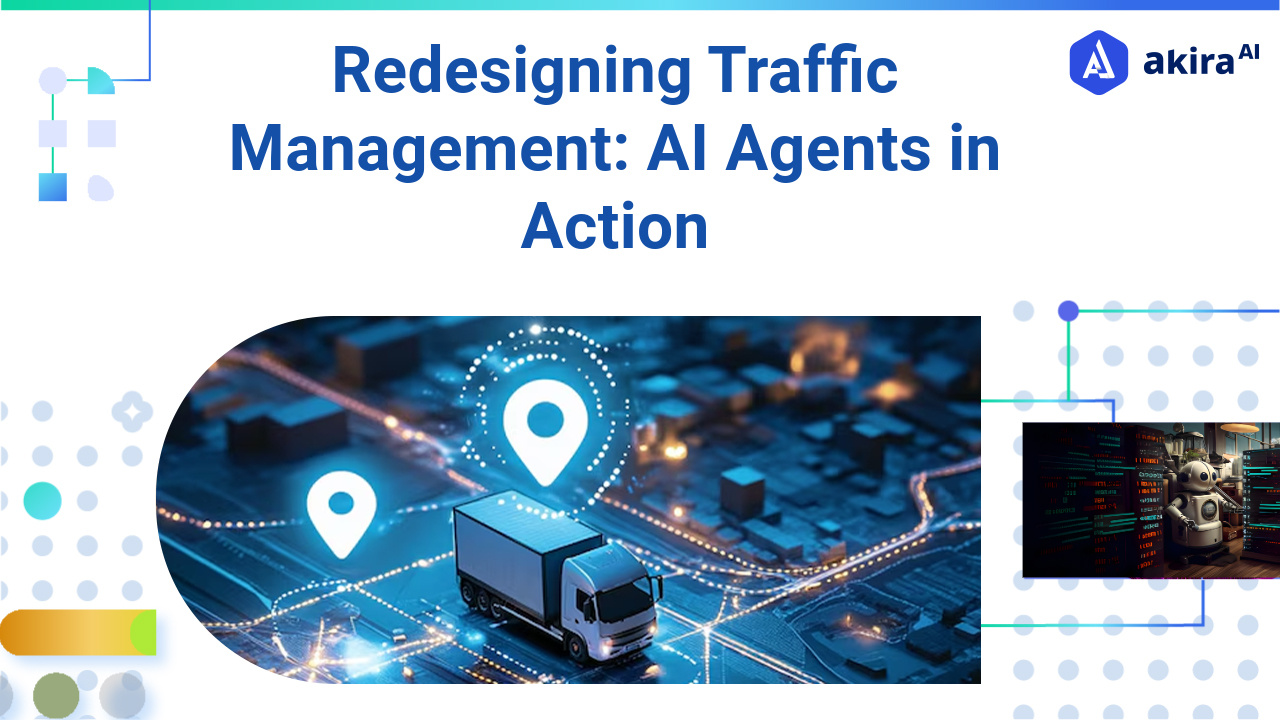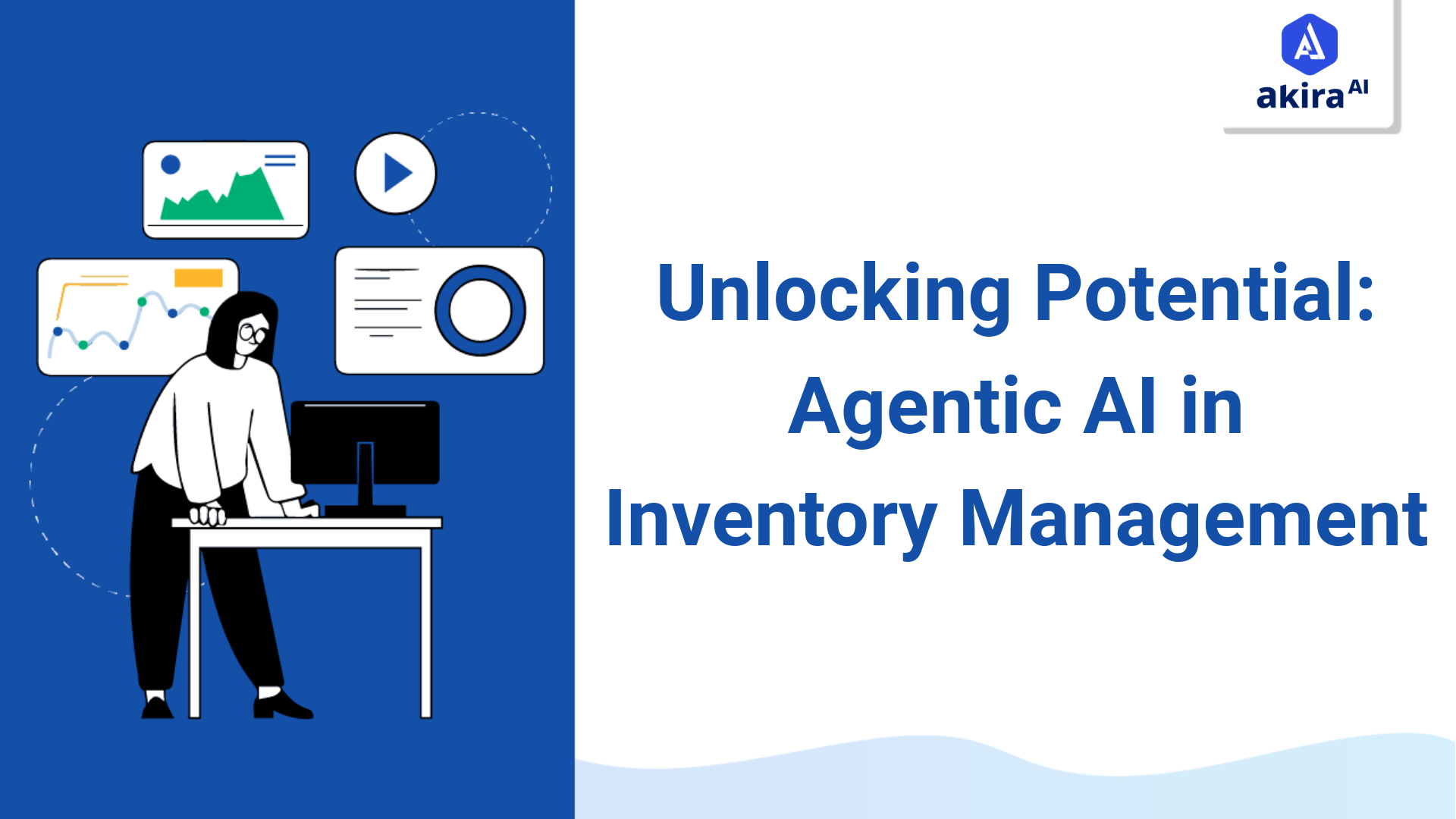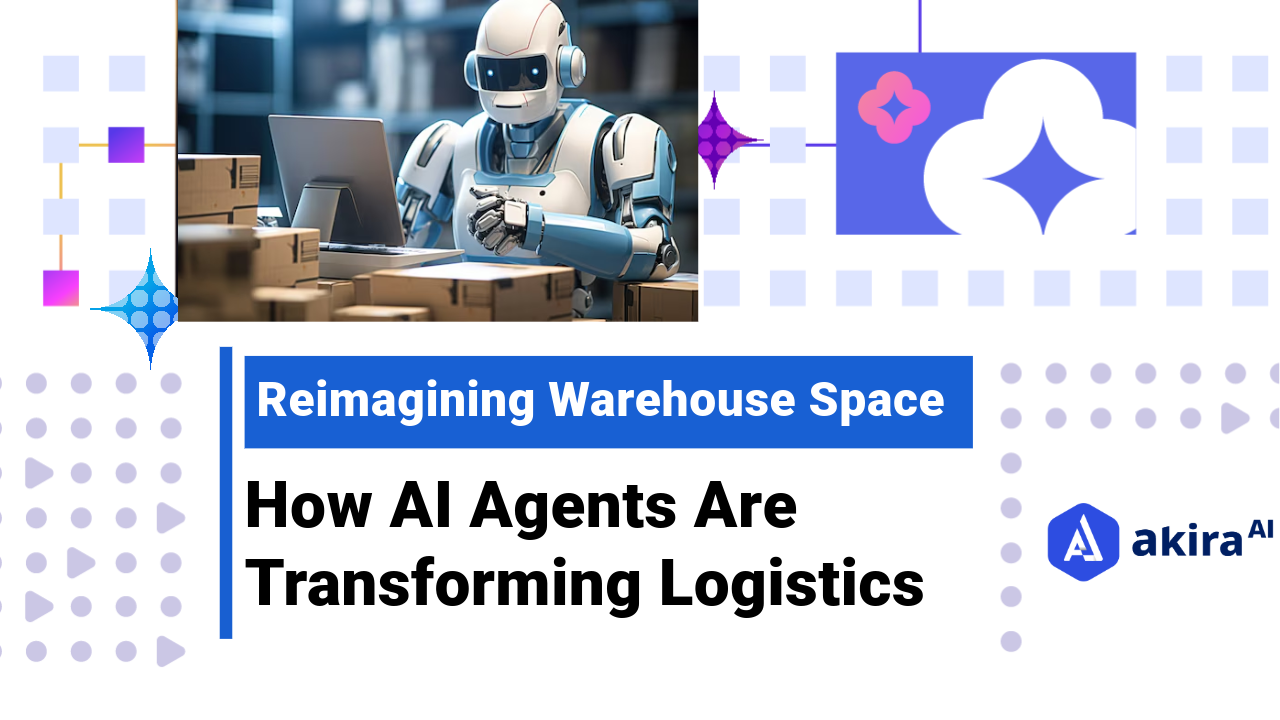As the world becomes increasingly interconnected, the logistics industry faces mounting challenges in meeting customer expectations. Effective shipment tracking and monitoring are critical for ensuring timely deliveries and maintaining operational transparency. Unfortunately, traditional tracking methods often lead to delays and inadequate visibility into supply chain processes. Enter AI agents, which leverage cutting-edge technology to revolutionize logistics practices.
These intelligent systems provide real-time data insights that significantly empower companies to optimize their operations. Join us as we delve into the vital role of AI agents in enhancing shipment tracking and discover how solutions like Akira AI are transforming the logistics landscape for the better.
What is Shipment Tracking and Monitoring?
Shipment tracking and monitoring refer to the systematic processes allowing businesses to oversee the entire lifecycle of goods from their origin to the final delivery. This includes features that provide real-time information about the location, status, and state of shipments, which are important for logistics. Since the client is more demanding of information relative to the current status of the order, the logistics providers require an adequate tracking system that is effective in promptly providing the status of the order.
Conventional structures involve limited and repetitive information processing and consistently delay the tactical dissemination of updates to decision-makers. This, in turn, results in misrouting of packages, delays in shipments, or general problems in inventory, leading to compromised service standards as well as customer satisfaction. On the other hand, incorporating AI in shipment tracking systems improves the way data pertaining to shipment is collected and how the data is analyzed by providing real-time supply chain information. It enhances the efficient running of operations since it assists business entities in preparing for the disruption of their activities.
A Brief Overview of Shipment Tracking and Monitoring
The conditions of shipment tracking and monitoring have always been an important challenge within the logistics industry. Conventional tracking leads to poor, and sometimes even incorrect, information timing and can cause distrust between logistics providers and their customers. Such deficiencies have never been felt as urgently as the globalization of business is on the ascent.
AI agents are revolutionizing shipment tracking by leveraging real-time data from multiple sources, including GPS, RFID tags, and IoT devices. These intelligent systems can process vast amounts of information, providing actionable insights to improve operational performance significantly. Utilizing agentic analytics will help increase efficiency and supply chain optimization.
Traditional vs. Agentic AI Shipment Tracking and Monitoring
|
Aspect |
Traditional Shipment Tracking and Monitoring |
Agentic AI Shipment Tracking and Monitoring |
|
Data Entry |
Manual and error-prone |
Automated and accurate |
|
Real-time Updates |
Often delayed |
Instantaneous updates |
|
Predictive Analytics |
Limited capability |
Advanced forecasting and insights |
|
Response to Issues |
Reactive measures |
Proactive problem-solving |
|
Customer Communication |
Basic notifications |
Personalized updates |
|
Cost Efficiency |
Higher operational costs |
Optimized processes reducing costs |
How Do AI Agents Facilitate Shipment Tracking and Monitoring?
AI agents are the lifeline of today’s shipment tracking and monitoring systems, providing a gamut of features that bring effectiveness and precision to the process. Below are several ways in which these agents facilitate improved tracking and monitoring:
-
Real-time Data Processing: These agents continuously gather and analyze data from various sources, such as GPS, RFID, and barcodes, to provide immediate updates on shipment status. This capability enhances operational transparency and allows companies to react swiftly to changes or disruptions in the supply chain.
-
Predictive Analytics: By analyzing historical data and trends, autonomous agents can forecast potential delays and recommend alternative routes. This predictive capability helps logistics providers mitigate risks and improve delivery times, ensuring that customer commitments are met.
-
Automated Alerts and Notifications: These agents can automatically send notifications to relevant stakeholders about shipment status changes, ensuring that everyone remains informed. This reduces the need for constant manual check-ins and improves communication among supply chain partners.
-
Enhanced Decision-Making: Access to comprehensive data analytics enables businesses to make informed decisions regarding resource allocation and operational strategies. By leveraging insights generated by such agents, logistics managers can optimize processes and enhance overall performance.
-
Route Optimization: When integrated, these agents can give information about the stock state estimated through the tracking of shipments. This capability enables the business to hold stocks at optimum levels without overstocking and without being out of stock, scenarios that can seriously affect operations and result in loss of sales.
-
Inventory Management: Integrated these agents can provide insights into stock levels based on shipment tracking. This capability helps businesses maintain optimal inventory levels, reducing the likelihood of overstocking or stockouts, which can disrupt operations and lead to lost sales.
-
Enhanced Customer Experience: Autonomous agents facilitate better customer communication by providing timely updates on shipment statuses. This transparency not only improves customer satisfaction but also builds trust and loyalty over time.
How Akira AI Optimizes Shipment Tracking and Monitoring
Akira AI employs a diverse array of specialized agents designed to optimize shipment tracking and monitoring processes:
-
Tracking Agents: These agents give geographical position and state information to other participants in the supply network, thus improving the view of the physical supply chain. Due to this, they enhance transparency and mitigate errors for better operational efficiency.
-
Analytics Agents: Focused on analyzing data trends, these agents offer insights into performance metrics, enabling companies to identify areas for improvement. This analytical capability facilitates better strategic planning and allows for data-driven decision-making.
-
Communication Agents: Acting as automatic notification customers, such agents keep stakeholders informed of shipment status, eliminating common worries about delivery cycles. This proactive communication helps to improve the level of customer satisfaction because they are informed all the time about the progress of the shipment.
-
Predictive Agents: Leveraging historical data, these autonomous agents forecast potential disruptions, allowing companies to proactively mitigate risks. By identifying likely problems, the strategies that have to be put in place in order to maintain a proper flow of operations can be identified.
-
Routing Agents: These agents utilize real-time data to optimize delivery routes, considering traffic conditions, weather forecasts, and shipment priorities. It enables a shorter time for transit and increases timeliness in the delivery of services.
-
Compliance Agents: Autonomous agents observe shipment conditions and record compliance characteristics; this tenders industry conformity. This is especially the case in industries such as pharmaceuticals and food transport, in which compliance is always necessary.
-
Performance Monitoring Agents: These agents are useful because they constantly monitor the various operating parameters, thereby enabling logistics managers to understand how efficient the existing systems are. They are sources of information that are a perfect fit for ongoing improvement activities.
Use Cases of AI Agents in Shipment Tracking and Monitoring
![]() Fig 1: Use Cases of AI Agents in Shipment Tracking and Monitoring
Fig 1: Use Cases of AI Agents in Shipment Tracking and Monitoring
The applications of AI agents in shipment tracking and monitoring are numerous and impactful:
-
Retail Logistics: Since the retail sector companies can get information on inventory and the status of shipments in real-time, inventory management is effective. These agents help ensure that retail businesses can respond effectively to fluctuations in consumer demand.
-
Food and Beverage: For temperature-sensitive shipments, autonomous agents monitor environmental conditions to ensure compliance with safety standards. They can help warn stakeholders when conditions fall outside specified limits so that measures to preserve product quality can be taken.
-
E-commerce Fulfillment: Messages from these agents give the client information about their order status, thus minimizing questions and increasing satisfaction. They enhance relations and ensure that high levels of customer interaction are achieved, necessary requirements given present market conditions in order to establish a loyal base.
-
Pharmaceutical Logistics: Vulnerable consignments in this sector must be protected from compromise. They track environmental features such as temperature and humidity to supply data that confirms adherence to strict regulatory standards.
-
Manufacturing Supply Chains: Coordinating the delivery of raw materials and components through these agents leads to more efficient production schedules. These agents can optimize routes for inbound logistics, reducing lead times and enhancing overall operational efficiency.
-
Automotive Logistics: Tracking the shipment of parts and finished vehicles is essential for maintaining production timelines. Autonomous agents ensure timely deliveries, reducing bottlenecks and improving overall efficiency in the supply chain.
-
Last-Mile Delivery: In the critical last-mile delivery phase, AI agents optimize routes for timely deliveries to customers. This capability is essential for enhancing customer experience and ensuring that deliveries meet promised timeframes.
Operational Benefits of Shipment Tracking and Monitoring
The operational benefits of incorporating AI-based solutions into shipment tracking and monitoring are substantial and far-reaching:
-
Enhanced Resource Allocation: Data insights allow the organization to provide relevant resources, thereby increasing productivity and efficiency of utilizing available resources. It results in better-accomplished logistics operations because of the proactive measures taken.
-
Scalability: AI-powered solutions can always adapt to larger organizations' demands and increased shipment volume without compromising efficiency. This is important when making alterations to meet the requirements of expanding the operation of the business.
-
Integration with Existing Systems: AI agents can easily fit into the current platforms in the logistics supply chain increasing functionality without overhauling existing systems. This also helps to ensure that businesses can continue to fully capitalize on investments they may already have while gaining improved functionality.
-
Cost Reduction: Implementation of efficient activities highly reduces expenditures such as transportation, labor, or inventory holding costs. This matters for financial efficiency is crucial in a quest to remain competitive in a shrunken market.
-
Improved Customer Retention: Providing customers with accurate and timely information about their shipments fosters trust and loyalty. Satisfied customers are more likely to return, driving long-term business success.
-
Data-Driven Insights: Continuous data collection and analysis provide businesses with insights that drive operational improvements. These insights can inform future strategies, enhancing overall effectiveness in logistics management.
Technologies Transforming Shipment Tracking and Monitoring
The advent of AI agents is transforming the landscape of shipment tracking and monitoring through innovative technologies that enhance operational efficiency:
-
Internet of Things (IoT): IoT devices collect real-time data on shipment conditions, enabling these agents to monitor temperature, humidity, and location continuously. This connectivity enhances visibility and supports better decision-making.
-
Machine Learning: Autonomous agents analyze previous data on shipment operations and make forecasts based on that data with the help of a machine learning algorithm. This capability helps businesses in route planning and overall business process efficiency.
-
Blockchain: The integration of blockchain technology enhances secure and unrestrictive database dissemination among the stakeholders. The agents can use blockchain to authenticate the transactions and record them since the information disclosed cannot be altered in the process of logistics, which in turn builds trust in the system.
-
Natural Language Processing (NLP): NLP allows AI agents to interpret and respond to customer inquiries, improving communication and providing timely updates. This technology enhances customer interaction by making it more intuitive and responsive.
-
Predictive Analytics Tools: Advanced analytics tools enable these agents to generate forecasts based on historical data and market trends. This ability benefits logistic providers in adapting to high and low demands and planning stock inventory.
-
Cloud Computing: The agentic AI system is cloud-based and can help the system gain a direct-access approach to data stored from any location, thereby increasing scalability and flexibility. By implementing this technology, logistics firms can easily respond to emerging market trends.
-
Autonomous Vehicles: As autonomous vehicles become more prevalent in logistics, these agents will play a crucial role in optimizing routes and coordinating deliveries, further streamlining operations and enhancing efficiency.
Future Trends in AI Agents for Shipment Tracking and Monitoring
As technology continues to evolve, the future of AI agents in shipment tracking and monitoring promises even greater advancements:
-
Increased Automation: The use of these agents will continue to increase due to the push for automation and the increased difficulty of the functions they perform within the logistics chain. This will, in turn, extend efficiencies and decrease running expenses as the change takes place.
-
Enhanced Predictive Capabilities: There will be improvements in the ability of agents to predict shipment disruptions and even delays. This will help logistics companies to act effectively, which will help to increase the reliability of their service.
-
Greater Customization: Future AI solutions will provide even more varied tracking opportunities for businesses, where they will be able to select the detailed mode of notifications and the reports required by the business for its operations. This means that personalization of the overall customer experience will also be improved.
-
Sustainability Initiatives: As sustainability is emerging in supply chain networks, AI agents will assist in route planning and minimize emissions, which is in line with long-term environmental objectives.
-
Integration of Augmented Reality (AR): AR technology will be overloaded with these agents to add improved means of observing the status and location of shipments.
-
Expanded Use of Blockchain: Blockchain’s key application in sharing secure data will remain relevant in tracing accountability and efficiency enhancement within the logistics business.
-
Collaborative AI Systems: Future autonomous agents may incorporate collaborative capabilities, allowing them to work together across different logistics platforms to improve overall supply chain performance.
Conclusion: AI Agent for Shipment Tracking and Monitoring
As we embark on a new era in logistics, the integration of AI agents into shipment tracking and monitoring is not just an improvement—it's a transformative force. These intelligent systems address long-standing operational hurdles while significantly boosting efficiency. With emerging technologies like the Internet of Things (IoT) and big data analytics, logistics providers can now foresee disruptions and optimize their workflows more effectively than ever. Solutions like Akira AI empower businesses to streamline their operations, cut costs, and enhance customer satisfaction. By embracing these cutting-edge innovations, logistics companies can not only excel in the present but also strategically position themselves for a future where agility and sustainability will be paramount in the industry.


